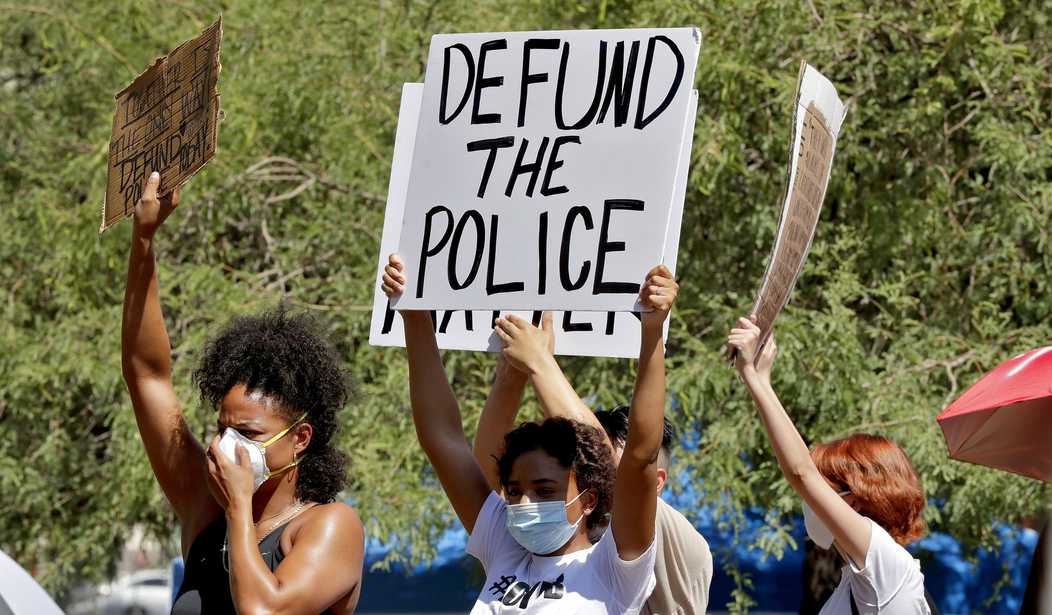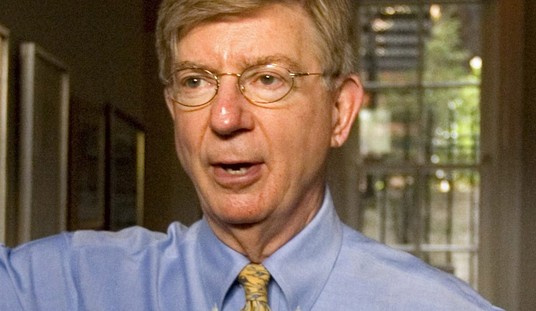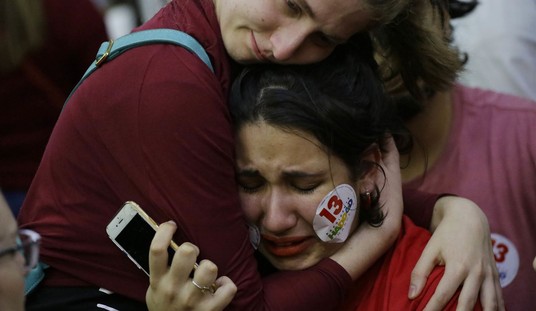Los Angeles Mayor Eric Garcetti says he wants to “defund the police” by taking $150 million from the $6 billion LAPD budget and transferring it to “communities of color.” Minneapolis city council will vote to “defund the police” and “reimagine policing.” Black Lives Matter claims that the only way you can support them is to support defunding the police.
What does it mean in practical terms to “defund the police.” This is more than a question of idle curiosity because the idea has caught fire and what was once the province of the radical fringe is rapidly going mainstream.
The chief of the LAPD union explains.
The Los Angeles Police Protective League, the union for the city’s rank-and-file officers, said budget cuts would be the “quickest way to make our neighborhoods more dangerous.”
“Cutting the LAPD budget means longer responses to 911 emergency calls, officers calling for back-up won’t get it, and rape, murder and assault investigations won’t occur or will take forever to initiate, let alone complete,” the union’s board said in a statement last week.
“At this time, with violent crime increasing, a global pandemic and nearly a week’s worth of violence, arson, and looting, ‘defunding’ the LAPD is the most irresponsible thing anyone can propose.”
About 95 percent of the LAPD budget goes to personnel costs. Even a brainless radical knows that cutting the police budget means having fewer officers on the street.
Ask Chicago how that worked out for them?
In his first year in office in 2011, former Mayor Rahm Emanuel cut the police budget by $190 million.
Supt. Garry McCarthy said he must trim $190 million from his department’s $1.3 billion annual budget, according to the Chicago Sun-Times.
McCarthy said he’s looking into eliminating job openings, but that would only make up half of the needed cuts.
The Sun-Times reports there are about 13,500 budgeted positions for sworn officers and about 1,400 vacancies.
In 2011, there were 433 murders according to statistics kept by the Chicago police. In 2012 there were 506 — the first time the city topped 500 murders since 2008. The murder rate fluctuated over the next few years but the number of shootings skyrocketed.
Too late, Mayor Emanuel jacked up the police budget by a billion dollars over the next five years. But then came several high-profile shootings of unarmed black kids, and police “reform” took hold. The city is still a shooting gallery and now activists want to cut the police budget again.
Speaking practically, some of what the activists are proposing is intriguing. Why shouldn’t mental health professionals respond to emergency calls involving mentally disturbed people? Why not have counselors respond to domestic disputes? Why not spend the money earmarked for law enforcement on community programs to keep kids out of trouble, teach adults to read, build affordable housing, or create the conditions for businesses to thrive, bringing employment to troubled areas?
The problem with these “aspirational” reforms is that these situations are not only volatile but potentially dangerous to anyone who intervenes. The mentally disturbed person could be armed. The domestic dispute could turn ugly in a second. And spending tens of millions in the inner cities won’t break the power of drug gangs, who are the major cause of most street violence in large cities.
The “root causes” of crime that make having a large, armed police force necessary won’t be solved by throwing money at the problems. They are, at bottom, political problems. There must be a will to fight the gangs for control of the streets and the courage to face down activists who seek to prosper through anarchy. Right now, there is no courage or will to get anything done. And ordinary, law-abiding citizens are suffering because of it.










Join the conversation as a VIP Member